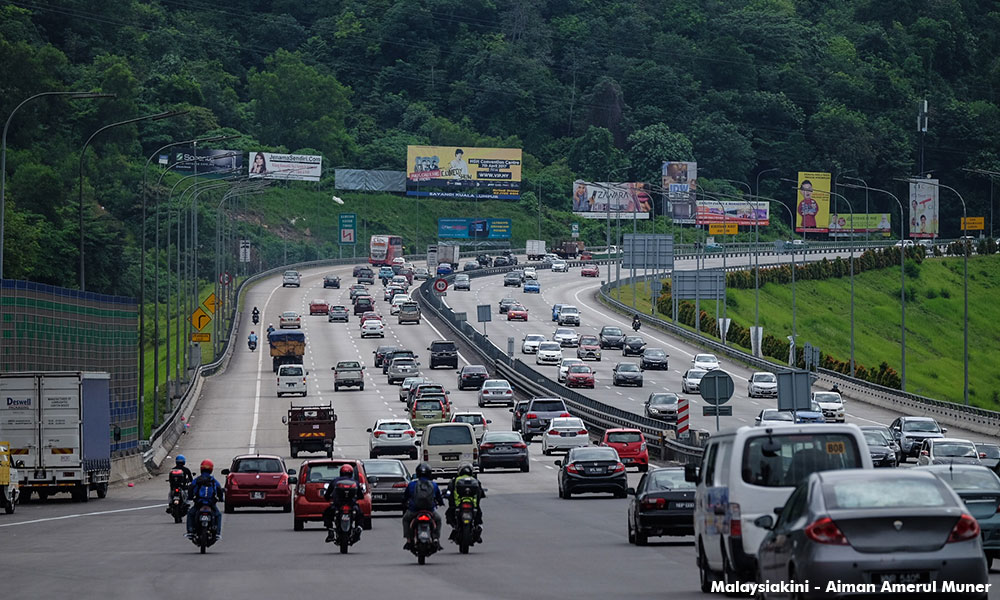LETTER | The terms and conditions of a standard motor insurance policy clearly state that private vehicles are not insured if used for hire or reward.
If any of the 20 general insurance companies operating in Malaysia provides such insurance coverage, it should announce it loud and clear.
Since 2014, I have been waiting for such coverage, as it was too risky to drive for Uber or Grab with only my private car insurance.
It was also against the law until amendments to the Land Public Transport (LPT) Act 2010 and the Commercial Vehicles Licensing Board (CVLB) Act 1987 were passed in the Dewan Rakyat on July 27 this year.
But other risks remain.
Firstly, I would not be able to make an “Own Damage” claim should my car be involved in a collision when ferrying fare-paying passengers, unless I lie to my insurance company that I was driving alone.
More importantly, my motor insurance does not cover for third party injuries, which is required by law for all motor vehicles on public roads.
The law protects injured victims, who would have to sue drivers at fault and wait for the court to award compensation, which would then be paid out by the insurance company.
However, insurance companies would repudiate the cover if any of the terms and conditions of the motor policy are breached, which effectively renders the vehicle without insurance.
In such a situation, drivers would have to pay out the compensation but few would have the money or assets to settle a huge claim.
Another matter that worries me are my liabilities to my would-be passengers. For public service vehicles, drivers are covered for more legal liabilities to their passengers, which is automatically included in the motor policies for taxis.
This coverage is also required by law so that injured passengers may sue the taxi driver at fault, similar to insurance cover for third party injuries.
When two vehicles collide, injured passengers may have to sue both drivers, as the taxi driver is insured for legal liability to passengers, and the other motorist covered for third party injuries.
Should the judge finds the taxi driver was mainly at fault and the other motorist less so, the insurance company for the taxi may have to pay 70 percent of the compensation, and the balance by the insurer of the other vehicle.

The annual premium for legal liability to passengers for private vehicles is low, at only 25 percent of the premium for third party cover. Although I could arrange for it, it does not cover for fare-paying passengers.
Personal accident insurance (PAI) covers are generally superior to the legal liabilities to passengers if the sum insured and medical expenses cover are adequate.
This is because PAI claims are paid out speedily, without having to establish fault, whereas compensations for a third party or legal liability claims usually take several years to settle.
As law amendments take time, it would be better for insurance companies to offer new motor insurance policies to cover private vehicles used for e-hailing service, including legal liability to passengers.
A fair rate would be between a sum of RM26 per thousand ringgit insured for private vehicles to RM69.80 for taxis. An unreasonable rate would be between RM102.50 per thousand insured for limousine taxis to RM122.10 for hire and drive vehicles.
Detariffication of the Motor Tariff started on 1 July 2016 but the silence from both insurance companies and the General Insurance Association of Malaysia, better known by its Malay acronym PIAM is deafening.
Motor insurance covers for private vehicles used for e-hailing service should be introduced and made clear to protect drivers, passengers and other road users.
This will also allow interested parties to apply for the intermediation business licence needed to provide passenger transport service using private vehicles through an e-hailing app.
Passengers would gain as long as Uber and Grab continue to compete fiercely with each other, but tables are turned when they chose to collaborate and take advantage of a duopoly.
The views expressed here are those of the author/contributor and do not necessarily represent the views of Malaysiakini.

